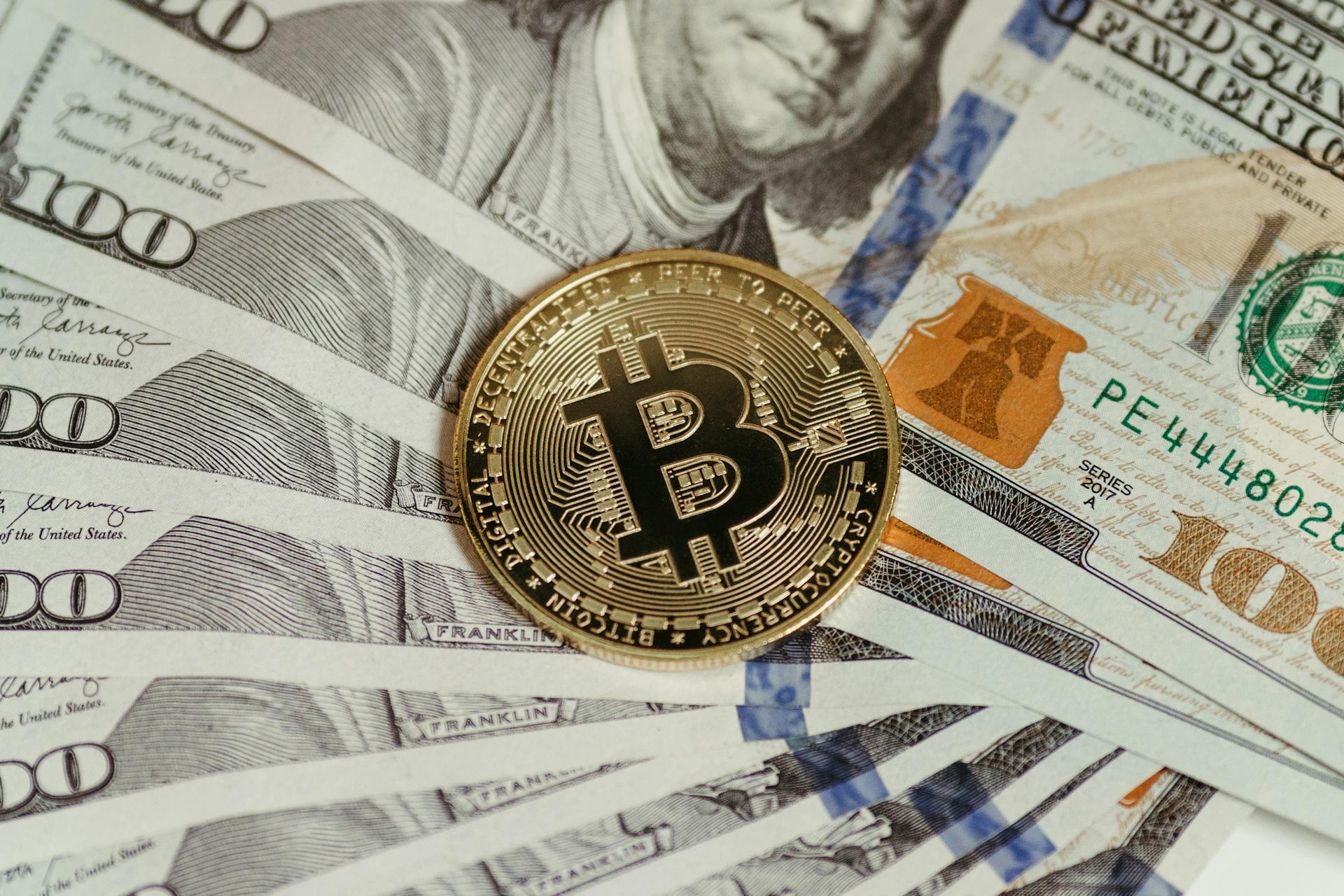
The identity of who created Bitcoin remains a secret, and it's a mystery that has sparked intense curiosity among the public and the cryptocurrency community alike.
The creator of Bitcoin, also known as Satoshi Nakamoto, is believed to be a pseudonym used by the individual or group behind the project.
Satoshi Nakamoto published a whitepaper in October 2008, outlining the concept of Bitcoin and its underlying technology, blockchain.
The whitepaper proposed a decentralized digital currency that would allow for peer-to-peer transactions without the need for intermediaries, and it has been widely credited with launching the cryptocurrency revolution.
The Mysterious Creator
Satoshi Nakamoto was the persona behind the early days of Bitcoin, working on the first version of the software in 2007.
Communication with Nakamoto was conducted via email, but the lack of personal and background details made it impossible to find out the actual identity behind the name.
Nakamoto solved a fundamental problem that prevented cryptocurrency adoption: the issue of "double-spending", where a currency could be spent more than once.
The distributed timestamp server proposed by Nakamoto used something similar to the proof-of-work system designed by Adam Back to generate computational proof of the chronological order of transactions.
Nakamoto's involvement with Bitcoin ended in 2010, with the last correspondence being an email to another crypto developer saying they had moved on to other things.
The inability to put a face to the name has led to significant speculation about Nakamoto's identity, especially with the rise of cryptocurrencies in popularity, notoriety, and value.
Key Players
Satoshi Nakamoto is the pseudonym credited with inventing Bitcoin itself.
Several people have claimed to be Satoshi, but their true identity has never been verified or revealed.
Satoshi would be a billionaire if they hold more than one million BTC, which is rumored but not proven.
The price of BTC today would make Satoshi a billionaire, given the current market value.
Other Candidates
Hal Finney is often considered a strong candidate for being the creator of Bitcoin, as he was one of the first people to work on the project and was the first person to receive a Bitcoin transaction from Satoshi Nakamoto.
Recommended read: First Bitcoin Wallet
Nick Szabo is another name often mentioned, but there's no concrete evidence to link him to the creation of Bitcoin.
Dorian Nakamoto, a Japanese-American man, was identified as a possible Satoshi Nakamoto, but he denied any involvement in the project.
Gavin Andresen, a former lead developer of Bitcoin, has been mentioned as a potential candidate, but he has consistently denied any claims of being the creator.
Craig Wright, an Australian computer scientist, has made claims of being Satoshi Nakamoto, but his claims have been met with skepticism and controversy.
Satoshi Nakamoto's true identity remains a mystery, and it's likely that we'll never know for certain who created Bitcoin.
The Invention of Bitcoin
Bitcoin was created by an anonymous person or group using the pseudonym Satoshi Nakamoto.
Nakamoto published a whitepaper titled "Bitcoin: A Peer-to-Peer Electronic Cash System", outlining the concept of a decentralized digital currency.
The true identity of Satoshi Nakamoto remains unknown to this day.
In October 2008, Nakamoto announced that they were working on a “new electronic cash system that’s fully peer-to-peer, with no trusted third party” on The Cryptography Mailing List.
Nakamoto’s decision to reveal Bitcoin to this mailing list suggests that the project’s origins were influenced by a community of cryptographers who had previously discussed electronic money.
The double-spending problem, a common obstacle in creating digital currency, was solved by Nakamoto through a decentralized system that relies on cryptography to produce proof that coins have only been spent once.
Bitcoin was invented by a person or group of people using the pseudonym Satoshi Nakamoto, whose real identity has never been uncovered.
Nakamoto began writing Bitcoin's code in the second quarter of 2007 and registered the domain name bitcoin.org in August 2008.
On 31 October 2008, Nakamoto published a white paper on the cryptography mailing list describing a digital cryptocurrency, titled "Bitcoin: A Peer-to-Peer Electronic Cash System".
The work of writing Bitcoin's code continued until mid-2010, when Nakamoto gave control of the source code repository and network alert key to Gavin Andresen.
You might enjoy: Digital Profile
Notable Figures
Satoshi Nakamoto, the creator of Bitcoin, remains a mysterious figure.
The first public release of the Bitcoin software was made by Nakamoto in 2009.
Nakamoto's true identity has never been confirmed, but his involvement in the development of Bitcoin is well-documented.
His work on the Bitcoin protocol and the creation of the first block, known as the Genesis Block, are significant milestones in the history of Bitcoin.
Hal Finney
Hal Finney was a pre-bitcoin cryptographic pioneer. He was the first person, other than Nakamoto himself, to use the software, file bug reports, and make improvements.
Finney lived a few blocks from a man named Dorian Satoshi Nakamoto. Forbes journalist Andy Greenberg asked a writing analysis consultancy to compare Finney's writing to Nakamoto's, and found it to be the closest resemblance they had yet come across.
Greenberg initially theorized that Finney may have been a ghostwriter on Nakamoto's behalf. However, after meeting Finney, seeing their email exchanges, and hearing Finney's denial, Greenberg concluded that Finney was telling the truth.
Finney's fellow extropian Robin Hanson assigned a subjective probability of "at least" 15% that "Hal was more involved than he's said".
Nick Szabo
Nick Szabo is a decentralized currency enthusiast who published a paper on "bit gold", a precursor to bitcoin. He is known to have been interested in using pseudonyms in the 1990s.
Szabo has been linked to the bitcoin white paper through stylometric analysis by blogger Skye Grey in December 2013. However, he has denied being the creator of bitcoin, Satoshi Nakamoto.
Szabo mentioned in a May 2011 article that he, Wei Dai, and Hal Finney were the only people he knew of who liked the idea of bitcoin enough to pursue it to any significant extent until Nakamoto.
Craig Wright
Craig Wright, an Australian academic, has been at the center of a controversy surrounding the true identity of Satoshi Nakamoto.
Craig Wright was identified as a potential Satoshi Nakamoto by Wired in 2015. He took down his Twitter account and refused to comment on the allegations.
Wright claimed that he chose the name "Nakamoto" in honor of Japanese philosopher Tominaga Nakamoto and "Satoshi" after the Pokémon character Satoshi.
Many prominent bitcoin promoters were unconvinced by Wright's claim, and subsequent reports raised the possibility that the evidence provided was an elaborate hoax.
Wright started using English libel law to sue people who denied he was bitcoin's inventor and called him a fraud in 2019. He registered a US copyright for the bitcoin white paper and the code for bitcoin 0.1, but the United States Copyright Office clarified that this was not a recognition of his ownership.
In March 2024, a High Court judge ruled that Wright was not Satoshi Nakamoto, stating that documents submitted as evidence substantiated Wright's claim were forgeries.
The court also found that Wright had lied to the court extensively and repeatedly.
Notable Accomplishments
Satoshi Nakamoto's paper, Bitcoin: A Peer-to-Peer Electronic Cash System, was published in 2008, introducing cryptocurrency to a wider audience and kickstarting its rise to popularity.
The paper addressed the double-spend problem, a significant issue that had been holding back digital currencies.

A digital currency can be duplicated in multiple transactions, unlike physical currencies that can only exist in one place at a time.
This led to the need for third-party intermediaries, like banks, to verify transactions and prevent double-spending.
However, this trust-based model comes with additional costs and the risk of fraud, as people involved in transactions can't always be trusted.
Cryptography and automated group consensus mechanisms are the solutions to remove the human factor from finances.
Wealth
Satoshi Nakamoto's wealth is estimated to be around 1.1 million bitcoin, which is a significant portion of the total 21 million possible bitcoins.
This amount gives Nakamoto a considerable market power, equivalent to about 5% of the total number of bitcoins.
The Genesis address, the first blockchain address, is believed to be one of Nakamoto's wallets, and it has received tokens of appreciation from the community.
As of October 3, 2024, the Genesis address had a little more than 100 bitcoins in it, but it continues to accumulate more due to the community's donations.
Anonymity was likely a deliberate choice for Bitcoin's creators, as it would have protected them from the potential consequences of being in the public eye.
See what others are reading: Bitcoin Genesis Block
Sources
- https://screenrant.com/who-created-bitcoin-satoshi-nakamoto/
- https://www.investopedia.com/terms/s/satoshi-nakamoto.asp
- https://en.wikipedia.org/wiki/Satoshi_Nakamoto
- https://www.britannica.com/biography/Satoshi-Nakamoto
- https://www.gemini.com/cryptopedia/who-controls-bitcoin-inventor-satoshi-nakamoto-btc-explained
Featured Images: pexels.com


